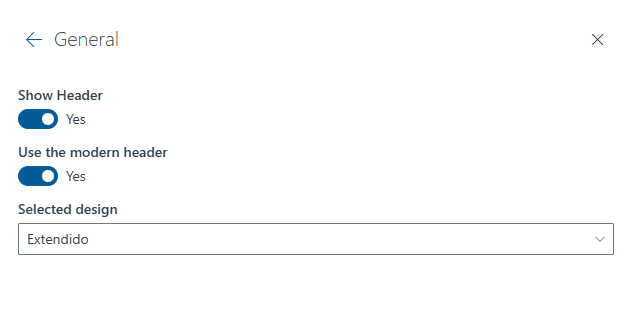Community Header Configuration
Audience: This article is intended for community owners and administrators
In Syntphony, you can customize the appearance and behavior of headers across different parts of your site. Configuration can be applied at various levels, providing flexibility to tailor the user experience.
Managing Modern Header Designs
You can create and manage custom designs specifically for the modern header style.
- To add or edit modern header designs: Navigate to
Syntphony settings > This tenant > Header. Designs are edited similarly to standard cards. For more details on card editing, see Card Design Schema.
General Header Settings

These settings control the overall appearance and type of header used. You can configure:
- Show Header: Choose whether to display the header or hide it.
- Use the modern header: Select between the Modern Header or the Legacy Header.
- Layout (Legacy Header): Choose between Compact or Extended layouts.
- Design (Legacy Header): Select any custom header design created within the tenant (as described in the section above).
Configuration Levels
Header settings can be applied at the following levels:
1. Site Page Level
Configure the header for a specific site page.
- Navigate to:
Syntphony settings > This page > General
2. Community Level (Site Pages)
Apply a header configuration to all site pages within a specific community. This setting will only override individual page configurations if the checkbox “Reset for all Site Pages in this Community” is selected.
- Navigate to:
Syntphony settings > This Community > General > Site pages
3. Community Level (News)
Apply a header configuration specifically for the News section within a community. This setting will only override individual page configurations if the checkbox “Reset for all News Pages in this Community” is selected.
- Navigate to:
Syntphony settings > This Community > General > News
By adjusting these settings, you can control the header’s appearance and functionality precisely where needed throughout your Syntphony instance.